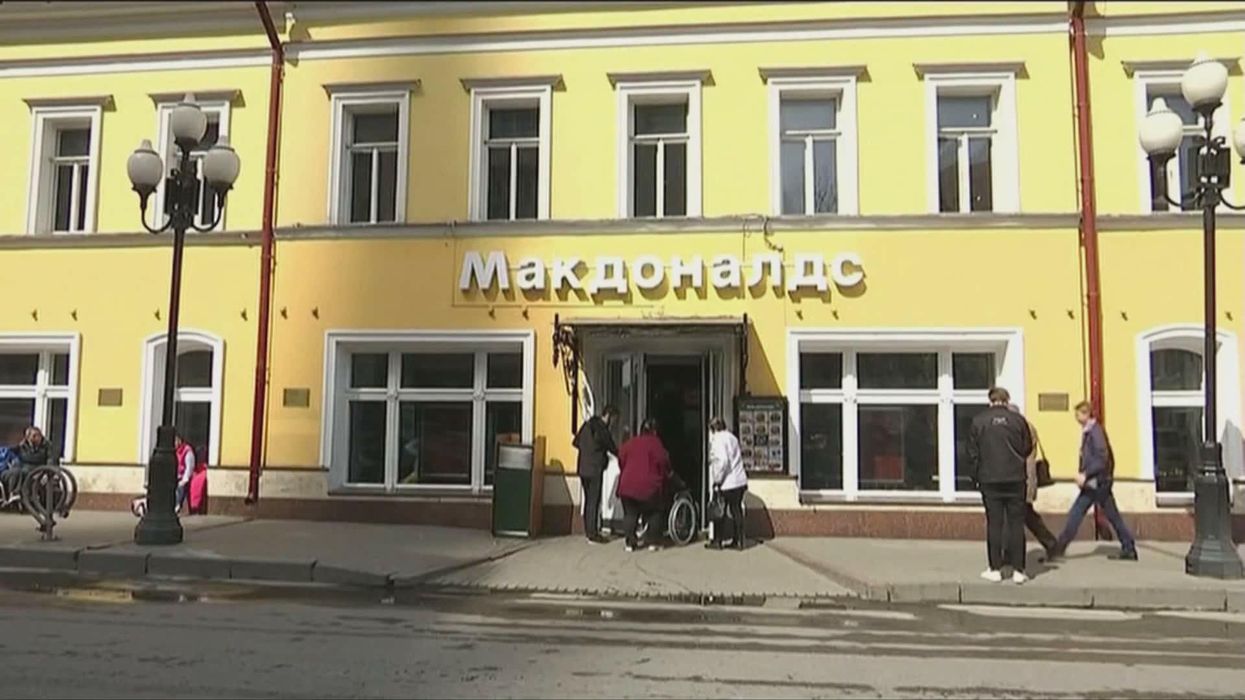More western companies have joined their governments in placing sanctions on Russia in the hope that it will pressure President Vladimir Putin to stop the bombing of Ukrainian cities and citizens.
Under pressure from customers and investors, over 120 companies have suspended production, sales, or operations in Russia. Among them are Apple, Starbucks, Netflix, Coca-Cola, and McDonald's, which announced yesterday it would close all 847 stores in Russia.
"Pretty much no company, no multinational, wants to be caught on the wrong side of U.S. and Western sanctions," said senior fellow at the Peterson Institute for International Economics Mary Lovely to CBS News.
Additionally, 23 private companies have introduced new policies to assist Ukrainians in the wake of the invasion including Sainsbury, PayPal, Airbnb, and more.
Combined with economic sanctions placed by western countries, it seems Russia will face serious financial implications from western companies' isolation. But the reality of the economic impact is a bit different.
Erik Gordon, an assistant professor at the University of Michigan's Ross School of Business, told ABC Newsthat likely these companies pulling out from Russia will not heavily impact their economy, but will likely more of a long-term impact.
Gordon believes that the companies disassociating from Russia will not be welcome to do business even if the invasion ends soon. "I don't think the Russian business will be a hospitable place for Western business for a very long time," Gordon told ABC News.
Sign up for our new free Indy100 weekly newsletter
As for the impact on the US's economy - the move will have minimal consequences.
Shon Hiatt, an associate professor of management and organization at the University of Southern California, told ABC News that the US economy is far more globalized than it was in World War II, which lessens the impact.
Hiatt noted that the Russian market only makes up approximately 3% of worldwide movie sales.
"This isn't the divestment like we're seeing with BP or the other oil companies," Hiatt said to ABC News. "This is a small drop in the bucket for these companies compared to other markets."
Even if the economic implications from companies are not as strong as government sanctions, the decision to stop production in Russia is still symbolic.
Former The Sun reporter, Graham Dudman, saw first-hand how the introduction of McDonald's, Starbucks, and Pizza Hut changed the culture of major Russian cities in the '90s.
"People dressed up in their best clothes and once they got inside McDonald’s would stay for hours sometimes eating two meals as they savoured never-before delights of a Quarter Pounder or Big Mac," Dudman said.
No doubt corporations' pull from Russia is symbolic in reminding Russian citizens and officials what life was like before the fall of the Soviet Union in 1990.
The Independent has a proud history of campaigning for the rights of the most vulnerable, and we first ran our Refugees Welcome campaign during the war in Syria in 2015. Now, as we renew our campaign and launch this petition in the wake of the unfolding Ukrainian crisis, we are calling on the government to go further and faster to ensure help is delivered.
To find out more about our Refugees Welcome campaign, click here.
To sign the petition click here.
If you would like to donate then please click here for our GoFundMe page.
Have your say in our news democracy. Click the upvote icon at the top of the page to help raise this article through the indy100 rankings.














